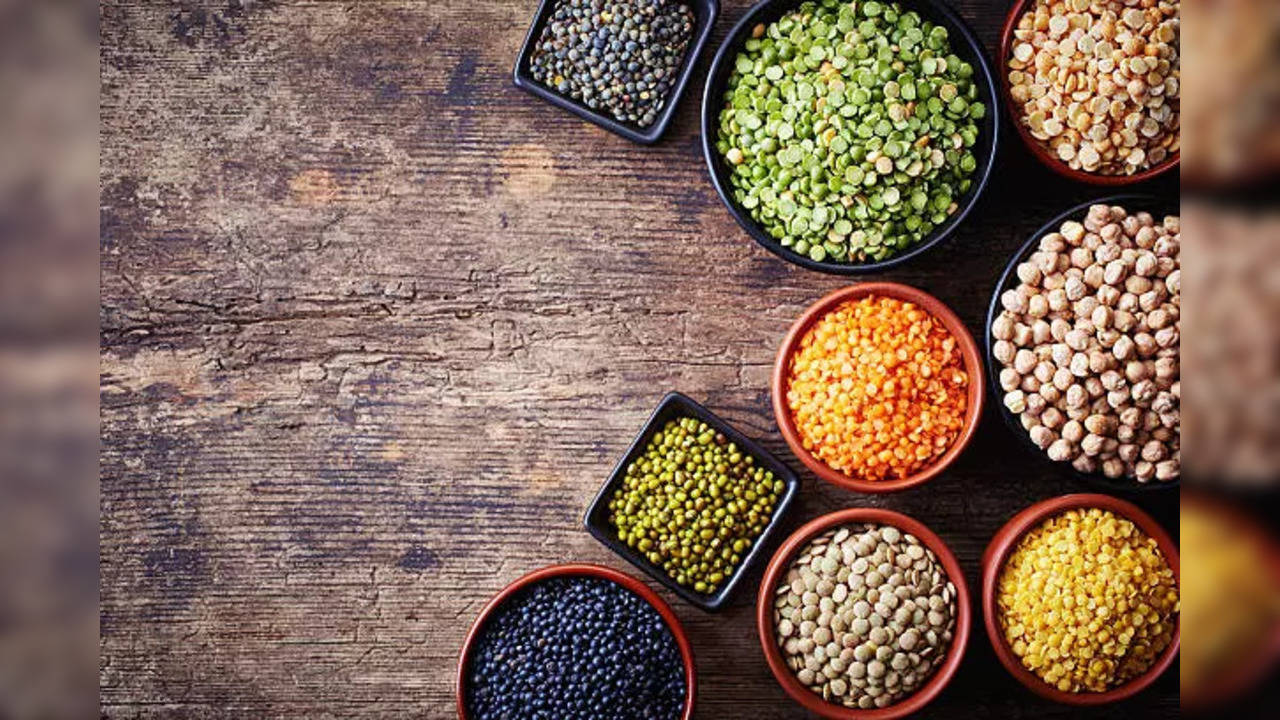Can I Eat Dal Without Spiking My Blood Sugar Levels? Experts Weigh In
An otherwise staple in Indian kitchens, dals are known for their rich protein quotient which keeps your heart health optimal. However, experts believe you must incorporate more lentils in your everyday meals if you are a type-2 diabetic for wholesome nourishment, as they do not spike blood sugar levels, and provide more fibre.

Dals have a low glycemic index or GI - a measurement of a food’s impact on blood sugar
New Delhi: All kinds of lentils and legumes are super healthy as they are loaded with protein and strengthen heart health. According to doctors, dals have a low glycemic index or GI - a measurement of a food’s impact on blood sugar.
Even though most people with diabetes are regularly recommended to eat more whole grains and legumes, till recently there was little hard evidence of the actual impact of these dietary changes on the long-term management of high blood sugar levels.
Various studies across the world have concluded exactly how much high-fibre and high-legume diets could benefit those with type-2 diabetes. At the University of Toronto, they divided a group of 121 type-2 diabetes patients and had half of them add a cup of legumes to their diet each day, while the other half consumed whole-wheat foods.
Their results, published in the scientific journal Archives of Internal Medicine, showed that HbA1c (hemoglobin A1c) - a measure of blood sugar, was reduced for both groups, with the high-legume group seeing a larger drop.
“Fibre helps regulate blood sugar and improves glycemic control, giving lentils a low glycemic index (GI), a measurement of a food's impact on blood sugar,” Opines Luciana M. Cherubin, a nutrition expert with MSN Health.
According to experts, lentils steadily release glucose in the bloodstream and hence do not spike blood sugar levels.
“The complex carbohydrates in lentils break down slowly, leading to a gradual and steady release of glucose into the bloodstream. This is crucial for individuals with diabetes, as controlling blood sugar is a key aspect of managing the condition. Furthermore, lentils are rich in soluble fibre that supports blood sugar regulation and satiation.” Dr. Sayali Dhake, Consultant – Endocrinology at SRV Hospitals, Dombivli told exclusively to Times Now.
Also, it is extremely easy and affordable to incorporate more dals into your diet daily. Lentils are easier to prepare as they do not require much pre-soaking and work well in many kinds of dishes.
“Pairing lentils with other low-glycemic foods such as vegetables and healthy fats further enhances the overall nutritional profile of a meal for diabetics,” Dr. Dhake added.
Surprising facts about lentils
A Canadian study, which claims that Canadians overall eat very few lentils, found that including them in your diet may help lower blood sugar levels and influence the way your body responds to carbohydrates. A few facts established were:
- Replacing potatoes and rice with dals may lower blood glucose levels by more than 20 per cent.
- Replacing half a serving of rice with lentils causes blood sugar levels to drop by up to 20 per cent.
- Replacing potatoes with lentils can lead to a 35 per cent drop.
Easy ways to add lentils to your everyday cooking
So, if you wonder how you can incorporate dals in your everyday cooking apart from the same old boring dish, see this:
- Adding lentils to any brothy soup
- Make a seasonal vegetable dip by pureeing lentils, seasoned with citrus and nut butter
- Add nutrition punch by mixing lentils into your salad
- Enhance texture by adding lentils to your stir-fried vegetables
- Add lentils to fillings for tacos or even kathi rolls with paneer
- Add color to your pot of curry or stew by adding red lentils
- Add lentil puree to your baking to make vegan cakes
- Add lentils to meat and chicken dishes for extra flavour
Disclaimer: Tips and suggestions mentioned in the article are for general information purposes only and should not be construed as professional medical advice. Always consult your doctor or a dietician before starting any fitness programme or making any changes to your diet.
End of Article
Subscribe to our daily Lifestyle Newsletter!
Videos





03:18
Amitabh Bachchan's Heartwarming Moment with Grandson Agastya Nanda in front of his Fans

02:10
Raveena Tandon addresses CONTROVERSIAL statements regarding Khushi Kapoor and Agastya Nanda in The Archies

02:27
iQOO 12 5G | Glimpse of Exciting Leaks! | Funtouch OS Android 14, Qualcomm Snapdragon 8Gen3 & More

02:15
OnePlus 12 Design & Looks | OnePlus 12 Latest Updates | OnePlus 12 Colour Available | Gadget Times

03:53
Urfi Javed Flaunts her Topless Style | Jennifer Mistry's HEARTWARIMNG note for TMKOC












